Policy
Public Assistance?

Our Editors

Dr Hazim Abdul-Rahman
Associate Editor
Sarcouncil Journal of Applied Sciences

Entessar Al Jbawi
Associate Editor
Sarcouncil Journal of Multidisciplinary

Rishabh Rajesh Shanbhag
Associate Editor
Sarcouncil Journal of Engineering and Computer Sciences

Dr Md. Rezowan ur Rahman
Associate Editor
Sarcouncil Journal of Biomedical Sciences

Dr Ifeoma Christy
Associate Editor
Sarcouncil Journal of Entrepreneurship And Business Management
Indexes


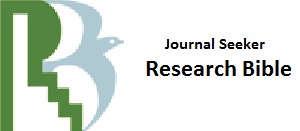
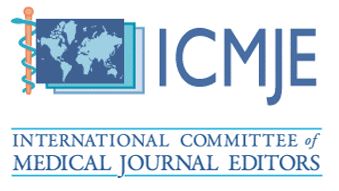
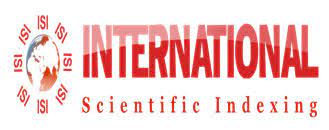
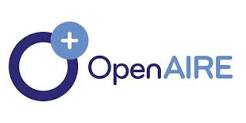
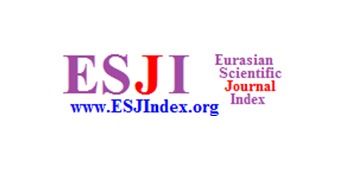
Policies:
Submissions
Other
Focus and Scope
SARC Publisher is committed to the advancement of knowledge through high-quality research publications in diverse academic and professional disciplines. Our primary objective is to foster intellectual exchange and disseminate cutting-edge research that contributes to scientific, technological, and social progress.
We welcome original research articles, review papers, case studies, and technical reports in the following broad domains:
- Engineering & Technology
- Artificial Intelligence & Machine Learning
- Internet of Things (IoT) & Embedded Systems
- Blockchain & Cybersecurity
- Robotics & Automation
- Sustainable Energy & Environmental Engineering
- Medical & Health Sciences
- Biomedical Engineering & Healthcare Technology
- Public Health & Epidemiology
- Pharmaceutical Sciences
- Artificial Intelligence in Healthcare
- Social Sciences & Humanities
- Economics & Development Studies
- Business Management & Finance
- Political Science & Public Administration
- Education & Pedagogy
- Natural & Applied Sciences
- Mathematics & Data Science
- Physics, Chemistry & Material Science
- Environmental Science & Climate Change
- Agricultural & Food Science
Publication Standards
SARC Publisher ensures a rigorous peer-review process to maintain high academic integrity and originality. We follow ethical publishing practices, encourage interdisciplinary collaboration, and promote open access to facilitate global knowledge sharing.
Target Audience
Our publications cater to researchers, academicians, industry professionals, policymakers, and students who seek impactful contributions in their respective fields.
Section Policies
Research Articles
|
|
|
|
Original Research Articles
|
|
|
|
Review Article
|
|
|
|
Short Communication
|
|
|
|
Case Studies
|
|
|
|
Editorial
|
|
|
|
Peer Review Process
All submitted manuscripts are read by the editorial staff. To save time for authors and peer-reviewers, only those papers that seem most likely to meet our editorial criteria are sent for formal review. Those papers judged by the editors to be of insufficient general interest or otherwise inappropriate are rejected promptly without external review (although these decisions may be based on informal advice from specialists in the field).
Initial manuscript evaluation
Editors make an initial evaluation of all manuscripts submitted to the journal. Manuscripts rejected at this stage typically are insufficiently original, have serious scientific flaws, or are outside the aims and scope of the journal. Those that meet the minimum criteria are passed on to at least one expert for review.
Authors of manuscripts rejected at this stage will be informed as soon as possible, usually within 1-2 weeks of receipt.
Peer Review Process:
SARC Publisher employs double blind reviewing process, where both the referee and author remain anonymous throughout the process.
Referee Selection:
Referees are matched to the paper according to their expertise.
Referee reports:
Referees are asked to evaluate whether the manuscript:
- Is original
- Is methodologically sound
- Follows appropriate ethical guidelines
- Has results which are clearly presented and support the conclusions
- Correctly references previous relevant work
- Is well written
Language correction is not part of the peer review process, but referees may suggest corrections to the manuscript.
Publication Frequency
Monthly Journal
Open Access Policy
SARC Publisher is committed to the principles of open access as outlined by the Directory of Open Access Journals (DOAJ), ensuring that scholarly research remains freely accessible to a global audience.
Archiving
This journal utilizes the CLOCKSS system to create a distributed archiving system among participating libraries and permits those libraries to create permanent archives of the journal for purposes of preservation and restoration.
Publication Ethics and Malpractice Statement
The publication of article in SARC Publisher is an essential building block in the development of a coherent and respected network of knowledge. It is a direct reflection of the quality of the work produced from the authors and the institutions that support them. Peer-reviewed articles support and embody the scientific method. It is highly recommended to agree upon standards of expected ethical commitment for all roles involved in the act of publishing: the author, the journal editor, the peer reviewer, the publisher and the society.
SARC Publisher takes its duties of responsibility over all stages of publishing extremely seriously and recognizes our ethical and other responsibilities. We are dedicated to ensuring that advertising, reprint or other commercial revenue has no impact or influence on editorial decisions. In addition, publisher and Editorial Board will assist in communications with other journals and /or publishers where this is useful and necessary.
Duties of Authors
(These guidelines are based on existing Elsevier policies).
Reporting standards: Reports submitted by authors should be, accurate account of the work performed as well as objective discussion of its significance. Underlying data should be represented accurately in the paper. A paper should contain sufficient detail and references to permit others to replicate the work. Fraudulent or knowingly inaccurate statements constitute unethical behaviour and are unacceptable. Review and professional publication articles should also be accurate and objective, and editorial works should be clearly identified as such.
Data access and retention: Authors may be asked to provide the raw data in connection with a paper for editorial review, and should be prepared to provide public access to such data, if practicable, and should in any event be prepared to retain such data for a reasonable time after publication.
Originality and plagiarism: The authors should ensure that they have written entirely original works, and if the authors have used the work and/or words of others that this has been appropriately cited or quoted. Plagiarism in all its forms constitutes unethical publishing behaviour and is unacceptable.
Multiple, redundant or concurrent publication: An author should not in general publish manuscripts describing essentially the same research in more than one journal or primary publication. Submitting the same manuscript to more than one journal concurrently constitutes unethical publishing behaviour and is unacceptable. In general, an author should not submit for consideration in another journal a previously published paper. Publication of some kinds of articles (e.g. clinical guidelines, translations) in more than one journal is sometimes justifiable, provided certain conditions are met. The authors and editors of the journals concerned must agree to the secondary publication, which must reflect the same data and interpretation of the primary document. The primary reference must be cited in the secondary publication.
Acknowledgement of sources: Proper acknowledgment of the work of others must always be given. Authors should cite publications that have been influential in determining the nature of the reported work. Information obtained privately, as in conversation, correspondence, or discussion with third parties, must not be used or reported without explicit, written permission from the source. Information obtained in the course of confidential services, such as refereeing manuscripts or grant applications, must not be used without the explicit written permission of the author of the work involved in these services.
Authorship of the paper: Authorship should be limited to those who have made a significant contribution to the conception, design, execution, or interpretation of the reported study. All those who have made significant contributions should be listed as co-authors. Where there are others who have participated in certain substantive aspects of the research project, they should be acknowledged or listed as contributors. The corresponding author should ensure that all appropriate co-authors and no inappropriate co-authors are included on the paper, and that all co-authors have seen and approved the final version of the paper and have agreed to its submission for publication.
Hazards and human or animal subjects: If the work involves chemicals, procedures or equipment that has any unusual hazards inherent in their use, the author must clearly identify these in the manuscript. If the work involves the use of animal or human subjects, the author should ensure that the manuscript contains a statement that all procedures were performed in compliance with relevant laws and institutional guidelines and that the appropriate institutional committee(s) has approved them. Authors should include a statement in the manuscript that informed consent was obtained for experimentation with human subjects. The privacy rights of human subjects must always be observed.
Disclosure and conflicts of interest: All authors should disclose in their manuscript any financial or other substantive conflict of interest that might be construed to influence the results or interpretation of their manuscript. All sources of financial support for the project should be disclosed. Examples of potential conflicts of interest which should be disclosed include employment, consultancies, stock ownership, honoraria, paid expert testimony, patent applications/registrations, and grants or other funding. Potential conflicts of interest should be disclosed at the earliest stage possible.
Fundamental errors in published works: When an author discovers a significant error or inaccuracy in his/her own published work, it is the authors obligation to promptly notify the journal editor or publisher and cooperate with the editor to retract or correct the paper. If the editor or the publisher learns from a third party that a published work contains a significant error, it is the obligation of the author to promptly retract or correct the paper or provide evidence to the editor of the correctness of the original paper.
Role of Editorial Team
These guidelines are based on existing Elsevier policies and copies Best Practice Guidelines for Journal Editors.
Publication decisions: The editor of SARC Publisher is responsible for deciding which of the articles submitted to the journal should be published. The validation of the work in question and its importance to researchers and readers must always drive such decisions. The editor may be guided by the policies of the journal’s editorial board and constrained by such legal requirements as shall then be in force regarding libel, copyright infringement and plagiarism. The editor may confer with other editors or reviewers in making this decision.
Fair play: An editor should evaluate manuscripts for their intellectual content without regard to race, gender, sexual orientation, religious belief, ethnic origin, citizenship, or political philosophy of the authors.
Confidentiality: The editor and any editorial staff must not disclose any information about a submitted manuscript to anyone other than the corresponding author, reviewers, potential reviewers, other editorial advisers, and the publisher, as appropriate.
Disclosure and conflicts of interest: Unpublished materials disclosed in a submitted manuscript must not be used in an editor’s own research without the express written consent of the author. Privileged information or ideas obtained through peer review must be kept confidential and not used for personal advantage. Editors should recuse themselves (i.e. should ask a co-editor, associate editor or other member of the editorial board instead to review and consider) from considering manuscripts in which they have conflicts of interest resulting from competitive, collaborative, or other relationships or connections with any of the authors, companies, or (possibly) institutions connected to the papers. Editors should require all contributors to disclose relevant competing interests and publish corrections if competing interests are revealed after publication. If needed, other appropriate action should be taken, such as the publication of a retraction or expression of concern.
Involvement and cooperation in investigations: An editor should take reasonably responsive measures when ethical complaints have been presented concerning a submitted manuscript or published paper, in conjunction with the publisher (or society). Such measures will generally include contacting the author of the manuscript or paper and giving due consideration of the respective complaint or claims made, but may also include further communications to the relevant institutions and research bodies, and if the complaint is upheld, the publication of a correction, retraction, expression of concern, or other note, as may be relevant. Every reported act of unethical publishing behaviour must be looked into, even if it is discovered years after publication.
Role of Reviewer
(These guidelines are based on existing Elsevier policies and COPE Best Practice Guidelines for Journal Editors).
Contribution to editorial decisions: Peer review assists the editor in making editorial decisions and through the editorial communications with the author may also assist the author in improving the paper. Peer review is an essential component of formal scholarly communication, and lies at the heart of the scientific method. Elsevier shares the view of many that all scholars who wish to contribute to publications have an obligation to do a fair share of reviewing.
Promptness: Any selected referee who feels unqualified to review the research reported in a manuscript or knows that its prompt review will be impossible should notify the editor and excuse himself from the review process.
Confidentiality: Any manuscripts received for review must be treated as confidential documents. They must not be shown to or discussed with others except as authorized by the editor.
Standards of objectivity: Reviews should be conducted objectively. Personal criticism of the author is inappropriate. Referees should express their views clearly with supporting arguments.
Acknowledgement of sources: Reviewers should identify relevant published work that has not been cited by the authors. Any statement that an observation, derivation, or argument had been previously reported should be accompanied by the relevant citation. A reviewer should also call to the editor’s attention any substantial similarity or overlap between the manuscript under consideration and any other published paper of which they have personal knowledge.
Disclosure and conflict of interest: Unpublished materials disclosed in a submitted manuscript must not be used in a reviewers own research without the express written consent of the author. Privileged information or ideas obtained through peer review must be kept confidential and not used for personal advantage. Reviewers should not consider manuscripts in which they have conflicts of interest resulting from competitive, collaborative, or other relationships or connections with any of the authors, companies, or institutions connected to the papers.
Policy of screening for plagiarism
Papers submitted to SARC Publsiher will be screened for plagiarism using Similarity Check / iThenticate plagiarism detection tools.
Copyright Policy
SARC Publisher is committed to maintaining transparency, accessibility, and ethical publishing practices in line with the Directory of Open Access Journals (DOAJ) guidelines. Our copyright policy ensures that authors retain rights over their work while promoting unrestricted access to published content.
1. Copyright Ownership
- Authors publishing with SARC Publisher retain full copyright of their work.
- Authors grant SARC Publisher a non-exclusive publishing right to disseminate and archive the article while allowing authors to distribute and reuse their work freely.
2. Licensing and Usage Rights
To ensure compliance with open access principles, all published articles are licensed under the Creative Commons Attribution 4.0 International (CC BY 4.0) license or other DOAJ-compliant licenses.
Under this license:
✅ Readers can freely read, download, copy, distribute, print, search, and link to the full text of the article.
✅ Users can remix, adapt, and build upon the work for any purpose, including commercial use.
✅ Proper attribution to the original author(s) and source is required.
❌ No additional permission is required from the publisher or author(s) for reuse.
If a different Creative Commons (CC) license is preferred by the author(s), such requests must be communicated at the submission stage and must comply with DOAJ open access standards.
3. Author Rights & Responsibilities
Authors publishing with SARC Publisher have the right to:
- Share their work publicly on repositories, personal websites, or institutional archives.
- Republish or distribute their content in different formats, including books or edited volumes.
- Enter into agreements for non-exclusive distribution (e.g., translation, adaptation) with proper acknowledgment of initial publication.
Authors are responsible for ensuring:
- The submitted work is original and does not infringe upon third-party copyrights.
- Proper citations and permissions are obtained for any reused content.
- The research adheres to ethical and legal standards, including proper acknowledgment of funding sources and conflicts of interest.
4. Publisher Rights & Responsibilities
SARC Publisher:
- Ensures free and unrestricted access to all published content without paywalls or embargoes.
- Provides persistent article identifiers (DOI, metadata indexing) for long-term discoverability.
- Archives all publications in trusted repositories (e.g., LOCKSS, CLOCKSS, institutional archives) to ensure permanent availability.
5. Copyright Infringement & Plagiarism Policy
SARC Publisher upholds strict anti-plagiarism policies. If copyright infringement, plagiarism, or unethical publishing practices are detected:
- The article may be retracted or removed from our database.
- Legal or ethical actions may be taken as per COPE (Committee on Publication Ethics) guidelines.
6. Copyright Transfer & Third-Party Usage
- SARC Publisher does not require a copyright transfer from authors.
- Third parties may reuse and distribute published content under the assigned CC BY 4.0 license without permission, provided proper attribution is given.
Retraction Policy
SARC Publisher prioritizes the importance of integrity and fulfilment of the scholarly record. The historic record of published research articles shall remain available and unaltered as far as possible. However, circumstances may arise where a paper got published based on misconduct or honest error. Editors certainly guide the review process with much care, but it remains notoriously difficult to detect all occurrences of misconduct or error. For this reason it may become necessary to correct the scholarly record. The decision to alter the record should not be taken lightly. Action taken depends on the individual case and can take the form of
- Expression of Concern
- Correction (Erratum or Corrigendum)
- Retraction
- Removal
The purpose of the action is to correct the literature and to alert readers. It is not intended to punish the author(s).
The responsibility of guiding an investigation of misconduct or honest error is with the editor of the journal concerned. Authors and reviewers will take part in the investigation. The editor will decide on the form to best correct the scholarly record. Guiding principles are COPE’s Retraction Guidelines and other accepted scholarly principles.
Minor errors that do not affect the integrity of the metadata or a reader’s ability to understand an article and that do not involve a scientific error or omission are corrected such that the original article is replaced with the corrected version. If requested action originates from an author, final action will be according to decision made by Editors and Editorial Panel Members.
Disclaimer
The Publisher and Editors cannot be held responsible for any type of error OR any consequences arising from the use of information in this web site of journal, the view and opinion expressed by the authors do not necessarily reflect those of the Publisher/Association and Editors, neither does the publication of advertisements constitute any endorsement by the Publisher/ Association and Editors of the products advertised. The authors are responsible for the contents appeared in their published manuscripts.
Publication Charges
SARC Publisher charges an Article Processing Charge (APC) of USD 50 for each accepted manuscript. This fee covers the cost of peer review, editorial processing, and online hosting. The standard fee includes manuscripts of up to 4000 words and 4–5 figures. Any additional words, figures, or special formatting may incur extra charges, which will be communicated to the author during the review process.
Author Guidelines
Authors can submit ARTICLE/S prepared in MS Word File should e-mail: submit.sarcouncil@gmail.com [OR] using our submission form mentioned websites
Before submitting your manuscript please read and follow the Journal’s guidelines for presentation. After you have clicked in the Submit Manuscript, please enter the entire mandatory field and select your journal which you want to publish, upload manuscript (word) file and click on submit
Presentation of Manuscripts
Manuscripts must be written in languages mentioned in the respective journal with Times New Roman Font, size 12, and should be clear and grammatically correct. Articles should be divided into sections below including Tables and Figures at appropriate positions in the following order:
Title page (Manuscript Title)
Abstract
- Introduction
- Materials and Methods
- Results
- Discussion
- Conclusion
- Acknowledgments
References
References Cited in the article should follow the below order.

Submission Preparation Checklist
As part of the submission process, authors are required to check off their submission’s compliance with all of the following items, and submissions may be returned to authors that do not adhere to these guidelines.
- The submission has not been previously published, nor is it before another journal for consideration (or an explanation has been provided in Comments to the Editor).
- The submission file is in Microsoft Word document file format.
- The text adheres to the stylistic and bibliographic requirements outlined in the Author Guidelines, which is found in About the Journal.
- If submitting to a peer-reviewed section of the journal, the instructions in Ensuring a Blind Review have been followed.
Privacy Statement
The names and email addresses entered in this journal site will be used exclusively for the stated purposes of this journal and will not be made available for any other purpose or to any other party.
SOCIAL MEDIA PROMOTION
Authors are request to mention there social media profile (Academia, Facebook, Instagram, and Orchid Id) to tag them for the manuscript promotion. Also authors can send a 5 min demo video of the research manuscript to promote in our YouTube Channel/Eduvid Page.
Journal Sponsorship
Publisher
SARC Publisher
Sponsors
SARC Publisher
Sources of Support
SARC Publisher


